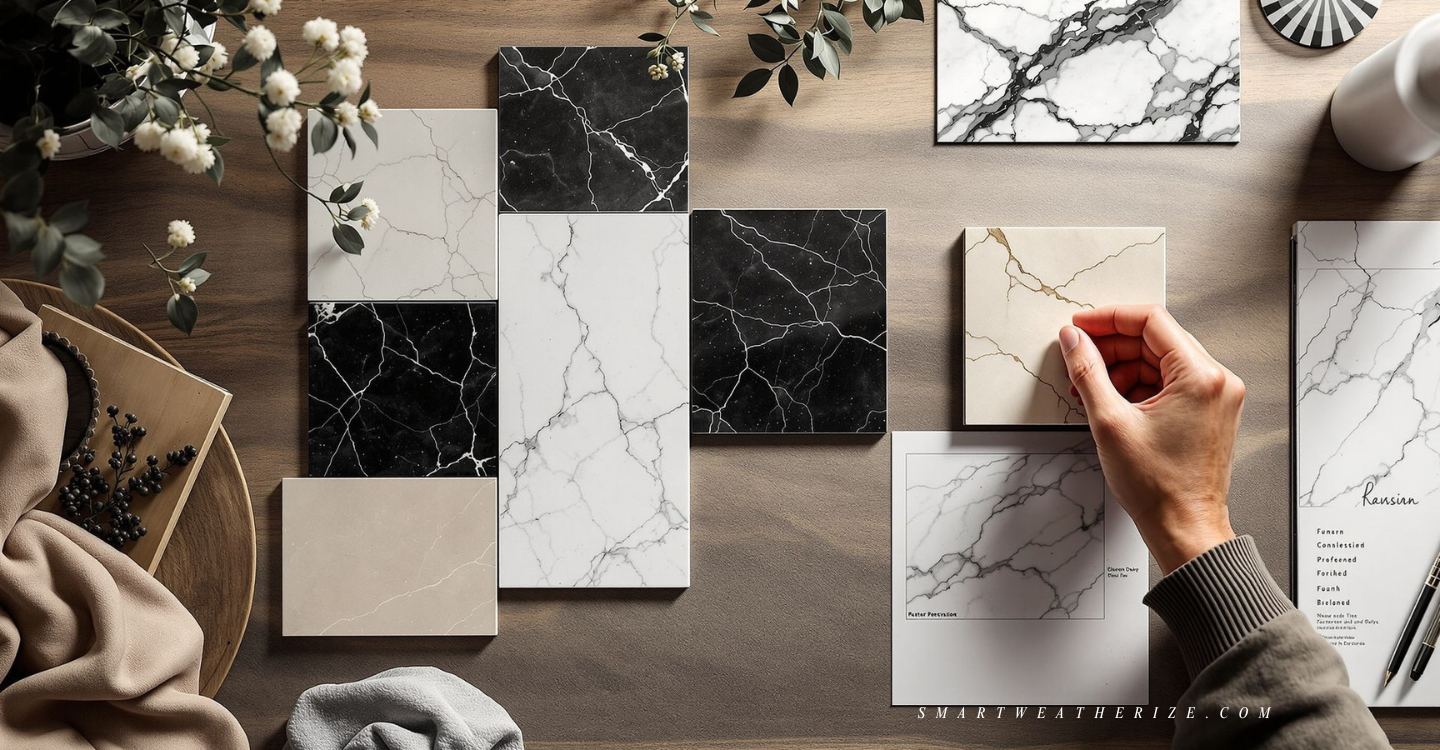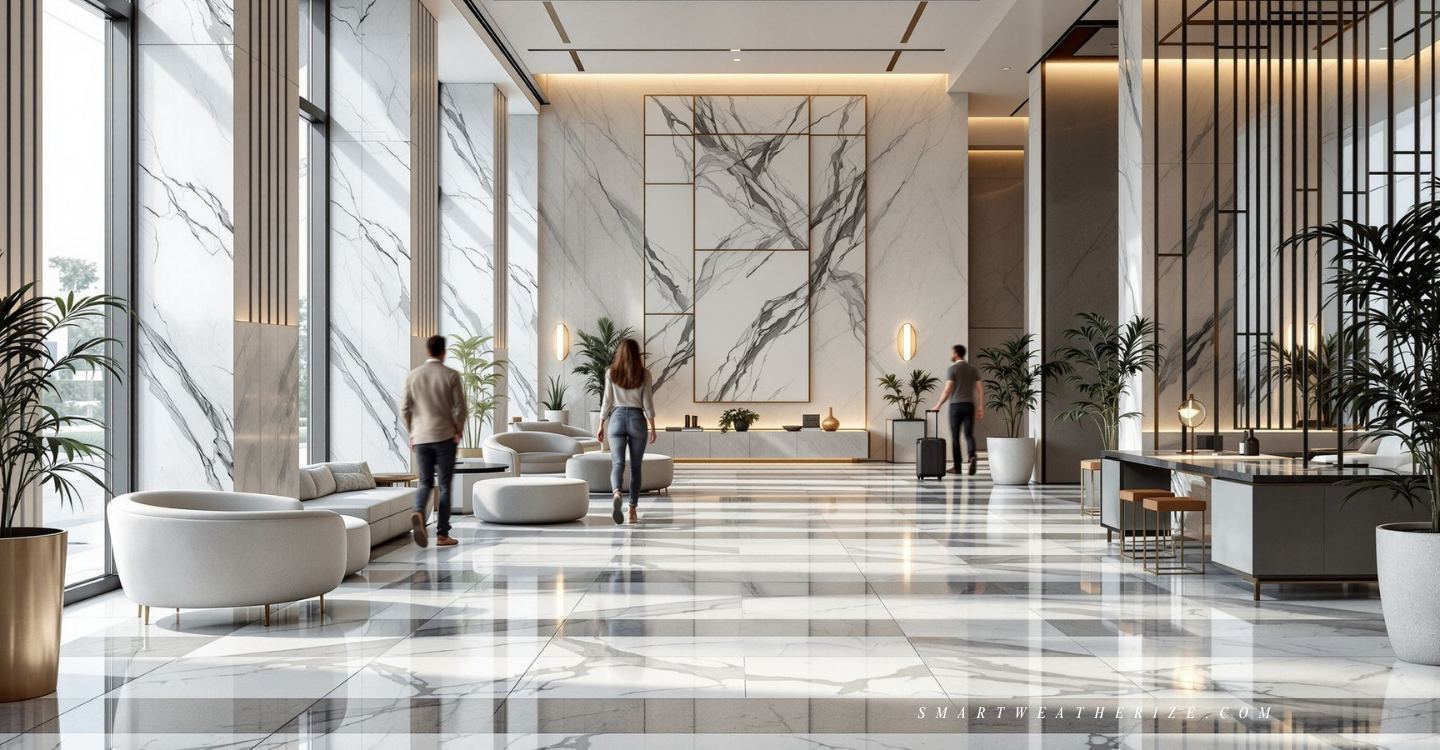There’s something undeniably captivating about checkered marble floors.
Maybe it’s the drama. Maybe it’s the way they hark back to grand European estates and old-Hollywood hotels. Whatever it is, this classic pattern is enjoying a fresh renaissance—and it still whispers timeless elegance.
Whether you’re renovating a historic home or designing a crisp, modern space, you’ve probably wondered:
Are checkered marble floors just eye candy, or are they genuinely worth the investment?
Let’s dive a little deeper.
What Are Checkered Marble Floors?
Imagine marble tiles laid out in alternating tones—usually black and white—like a life-size chessboard beneath your feet. It’s a bold design choice, but it’s not just about show. The checkerboard motif has centuries of cultural weight, giving any space an air of thoughtful gravitas. As a subset of stone floors, this pattern blends natural material authenticity with graphic precision.
A Little History: Where It All Began
Checkered flooring isn’t new. It hails from Renaissance and Baroque design, where palace and cathedral floors embraced the pattern as a symbol of refined taste and power. Fast forward centuries: the same motif appeared in colonial manors and Art Deco sanctuaries. Now, it’s back—less about aristocracy, more about intentional style layered into modern homes.
Mixing It Up: Beyond Black and White

Yes, black and white is iconic—but you can personalize it. Picture beige-and-cream pairs for warmth, or soft grays for a minimalist cool. Finish matters, too: a glossy polished look spells drama, while a honed matte finish keeps things grounded and safer underfoot.
Tile size also plays a powerful role. Layout choices influence how large or intimate a space feels, especially with bold patterns. Floor Decor Texas explores this concept in depth in their guide on how to make small rooms feel bigger with the right tile design, which pairs beautifully with checkered marble planning.
Why Checkered Marble Floors Win Hearts
- They look stunning. Whether your space trends vintage or ultra-modern, the pattern bridges eras effortlessly.
- They can boost home value. According to Zillow, marble features may increase resale value by up to 10%.
- They’re durable when cared for. With sealing and proper maintenance, marble can last decades.
- They’re one-of-a-kind. Natural veining ensures no two floors are identical.
- They stay cool. In warmer climates, marble’s thermal mass helps reduce indoor temperatures.
Preserving that elegance requires correct care. Floor Decor Texas outlines best practices in their detailed resource on how to clean marble floors, including why pH-neutral cleaners and microfiber tools matter.
But Here’s Where You Might Pause
Maintenance isn’t minimal. Marble is porous, meaning annual sealing, gentle cleaners, and fast spill response are non-negotiable.
It’s an investment. HomeAdvisor estimates installation costs between $10 and $40 per square foot, with checkered layouts often requiring higher labor precision.
A polished surface can be slippery. Flooring specialists at StoneTech frequently recommend honed finishes or anti-slip treatments in kitchens and baths.
Sun exposure matters. UV light can yellow lighter marble tones over time. Window treatments and sealers help mitigate this risk.
Temperature sensitivity. Marble can feel cold underfoot in cooler climates and may require rugs or radiant heating for comfort.
By the Numbers (and Stories)

| Feature | Insight |
|---|---|
| Cost | $10–$40 per sq. ft. installed |
| Resale Value | Up to 10% increase with marble finishes |
| Energy Efficiency | Natural stone moderates indoor temperatures (Building and Environment) |
A Parisian flat: A developer installed black-and-white checkered marble in the entry and kitchen, achieving a 12% resale boost and editorial coverage.
A SoHo boutique hotel: Honed marble flooring in the lobby withstands heavy traffic with scheduled maintenance and leaves a lasting first impression.
Expert Voices
“Checkered marble flooring is one of the few styles that never goes out of fashion, but it does require respect and care to preserve its beauty.”
— Sarah Sherman Samuel, Interior Designer
“For high-traffic areas or commercial use, investing in anti-slip treatments or honed finishes is essential.”
— Michael Rowe, Flooring Specialist
Your Frequently Asked Questions
Are checkered marble floors outdated? No—they’re timeless and feel modern when paired with contemporary tones or finishes.
Can I use them in a bathroom? Yes, with honed finishes or slip-resistant treatments.
Are they hard to clean? They require consistent care, not harsh products.
Do they make rooms feel smaller? Not necessarily—tile size and contrast strongly influence perception.
So—Should You Go for It?
If you value craftsmanship, elegance, and architectural presence, checkered marble floors are a powerful choice. With thoughtful installation and maintenance, they deliver long-term beauty and strong resale appeal.
If lower maintenance is your priority, polished porcelain alternatives within modern tile floors can recreate the look with less upkeep.
Next Moves
Consult a designer about layouts and contrast. Request quotes from experienced installers—precision matters. Consider daily life, foot traffic, and maintenance tolerance. Most importantly, view samples in your actual space before committing.
In the end, the question isn’t just whether the floor looks beautiful—it’s whether you’re ready to live beautifully with it.
